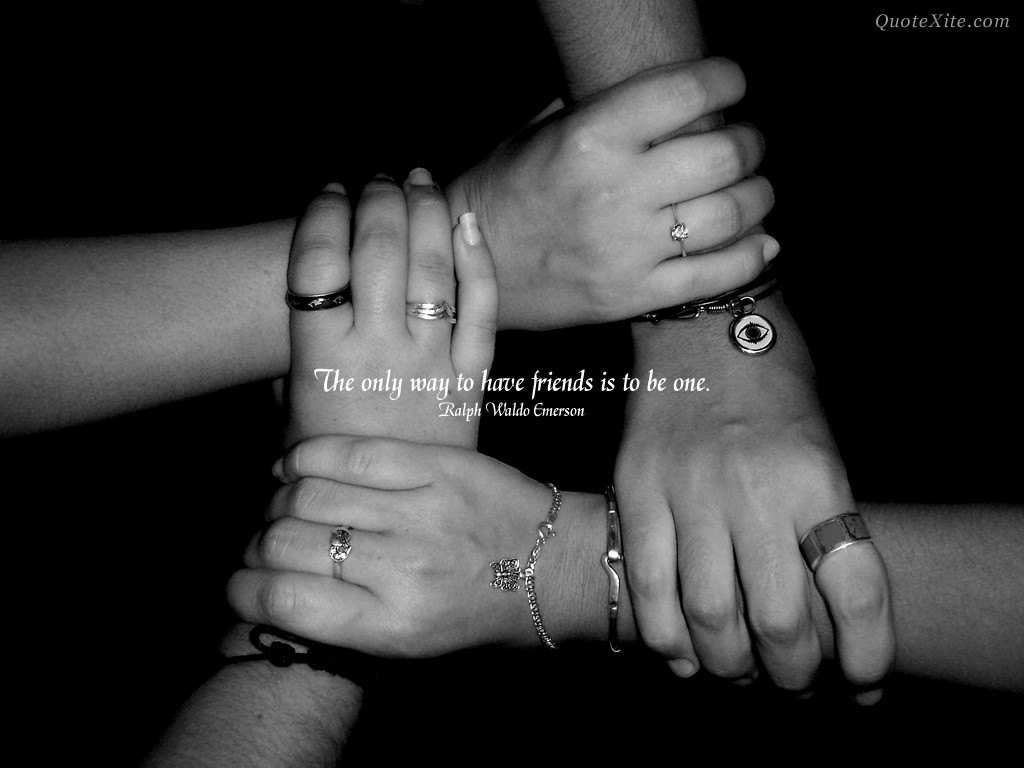Word-Of-the-Week #1026: Emergency
April 4, 2024 by Susan Clarke · Comments Off on Word-Of-the-Week #1026: Emergency
Emergency – a sudden, urgent, usu. unexpected occurrence requiring immediate action.
How comfortable are you dealing with an emergency? Can you stay calm and focused in an intense situation?
Steve Strauss, author of STEVE’S 3-MINUTE COACHING, once again has great insight to share.
Principle: Dealing With Emergencies
(Principles are basic truths that, when applied, cause success to come to you easier and quicker.)
Talking with a seatmate during a recent airplane trip we discussed his history which included years as a paramedic. A phrase just slipped out of him about how he stayed calm and focused in intense situations.
Each event he would remind himself, “This is not my emergency.” That frame of reference supported him to remain professional and caring in the middle of emotion-filled disasters.
Sometimes he physically grounded/anchored the phrase by touching the door-frame as he entered a home or office or as he arrived at the mangled body of a vehicle.
Be present? Of course. Do what you’re there to do? Yes. Take on the emotional energy of the participants? Not useful.
Coaching Point: Can you recall an emotion-based situation where reciting “This is not MY emergency” would have helped you stay focused and have performed with a clearer head and heart?
See all past issues and subscribe here Steve’s 3-Minute Coaching
— Copyright 2024 Steve Straus. All rights reserved. —
This week’s focus is about dealing with an emergency. I have found that people who don’t plan or are impatient create what I call “a fire drill.” They expect people to help at the drop of a hat. And that creates a sudden, urgent situation requiring immediate action. How would it feel for you to say, “This is not my emergency?”
I LOVE feedback! Join my Facebook community on my FUN-damentals Fan Page.
Word-Of-the-Week #1025: Change
March 28, 2024 by Susan Clarke · Comments Off on Word-Of-the-Week #1025: Change
Change – the action of making something different.
Do you find change difficult or stressful? Or do you love the excitement of creating or experiencing something new?
This week features more sage wisdom from Sam Horn’s newsletter.
ANECDOTE
Carol worked in DC and commuted 2-3 hours EVERY DAY.
Being away from home for 13+ hours a day made her feel especially guilty because she wasn’t able to play with her dog, Aussie.
She dropped Aussie off at a doggie day care every morning, but he’d developed separation anxiety and he “cried” – which made her feel even more guilty.
When she got home at night, she was too tired to play with him – and on weekends, she had chores and wanted to catch up on sleep or go out with friends/coworkers.
After listening to her story, I made a drastic suggestion. I said, “I know you love Aussie AND is there someone nearby who would love him and give you “visitation rights?”
She was shocked that I’d even suggest it… But the more she thought about it, the more she realized she was working hard to pay for a house and dog she loved, but never had time or energy to enjoy either of them.
Carol realized things were going to stay the same – unless she made a change.
So, she asked her son, who lived nearby, if he might be interested in Aussie. He is a marathoner and quickly agreed because he welcomed the companionship on his training runs.
The best part is – now she gets to see both of them whenever she wants!
Plus, since she no longer needed a house with a big backyard, she sold her home and moved closer to work.
Now that she doesn’t have to commute, she has 2-3 extra hours every day to go to the gym and hang out with coworkers.
She’s fit, feeling better about herself, and finally has a social life… All because she had the courage to honestly assess her life and make changes that had a catalytic ripple effect.
ACTION
- How about you? Do you like your life the way it is?
If so, good for you! If not, what is ONE THING you could change that could have a catalytic ripple effect?
- What STUFF might holding you back or weighing you down?
And when I say STUFF, I don’t just mean possessions – I mean commitments.
Be HONEST, because if we don’t admit it, we can’t address it.
This week is all about change. Change is inevitable, growth is optional. That pretty sums up life wouldn’t you say? How would it feel to embrace change knowing that YOU CAN AND WILL get through it? And how about the added bonus of improving your life too?
I LOVE feedback! Join my Facebook community on my FUN-damentals Fan Page.
Word-Of-the-Week #1024: Relax
March 21, 2024 by Susan Clarke · Comments Off on Word-Of-the-Week #1024: Relax
Relax – what you need to do to reduce stress.
Does having your “plate too full” make you feel stressed? How much time do you take each week to just relax? When you go on vacation how long does it take you to fully unwind? You did take a vacation from work last year, right?
This week’s WOW is from Time Magazine featured an article titled, “Six Ways to Handle Stress.” First, “There’s more than one way to relieve stress.”
- Breathe Deeply. Regular, slow breathing – a common characteristic of meditation and prayer – alerts your brain that you are in a safe place far away from predators. It also relaxes your heart, decreases blood pressure, and removes waste from the bloodstream.
- Take a Vacation. A change of scenery clears the head, recharges the batteries and, according to a recent study sponsored by Air New Zaland, improves reaction time 82% – provided that you ignore your e-mail and allow a couple of weeks to disengage and unwind.
- Make Friends. Social isolation increases the physiological damage caused by stress. A 2006 survey found that Americans have only two close friends with whom they can confide their deepest concerns – down from three friends 20 years ago.
- Exercise Regularly. It protects the heart, which is often the first to feel the effects of stress. Studies show exercise also helps maintain the brain’s ability to change focus quickly from one situation to another.
- Eat Plenty of Fruits & Vegetables. The antioxidants and other ingredients they contain counter-balance the inflammatory proteins the body produces under stress.
- Don’t Stay Up Late. Irregular sleep increases the effects of stress on your body, setting you up for metabolic imbalances that increase your risk of heart disease.
- Do What You Love. Having a sense of mission about your job makes it easier to deal with inevitable setbacks. (You will still need to take those regular breaks from work.) And if you can’t find meaning in your job, look for it in a hobby or through participation in religious or community organizations.
The good news is, I am in Hawaii to Relax and experience some Nature. And as Sandra, my long-time dear friend said after reading my WOW on Nature, “I was planning to run to the gym but, maybe I will hike outside today!”
This week’s focus is on making time to relax. Are you able to do that or do you feel guilty? Do you take time to breathe deeply? Do you have friends with whom you can confide in? Are you doing what you LOVE? Are you exercising regularly? If not, “Go take a hike!”
I LOVE feedback! Join my Facebook community on my FUN-damentals Fan Page.
Word-Of-the-Week #1023: Adventurous
March 14, 2024 by Susan Clarke · Comments Off on Word-Of-the-Week #1023: Adventurous
Adventurous – willing to undertake new and daring enterprises.
At this stage of your life how willing are you to undertake new and daring enterprises? Does that feel scary or intimidating? Or do you get a feeling of excitement?
I’m on vacation for the next 2 weeks and definitely plan on being adventurous! So, I’m re-running some of my favorite travel WOW’s.
New York times writer Carl Richards aka SKETCH GUY is this week’s contribution. His latest article “Adventurous Quests Sharpen Everyday Skills” states, “I was telling a friend about some projects that really excited me – a new book I’m working on, an article I’m writing and a new hobby, motorcycling in the desert.
He asked, “How do you stay so motivated and so excited about things?”
It caught me off guard. I hadn’t really considered the “why” behind my activities. But I realized that the common thread was the feeling of being in over my head, just a little. In other words, doing things despite the fact that that, as the marketing guru Seth Godin likes to say, “this might not work.”
Now, that may sound counterintuitive. It’s easy to wonder how doing stuff that makes you uncomfortable, and might not even work, is a source of motivation. I’ve been thinking a lot about this paradox. I wondered whether I’m wired differently. But there’s something about a sink-or-swim environment that excites me.
My friend Dallas Hartwig told me about this concept call hormesis, a phenomenon by which something that could impair or even kill you in high doses can make you stronger in low doses.
Of course, I thought. What doesn’t kill you makes you stronger. It’s well documented that the way to grow muscle is to rip the muscle tissue, and then give it time to regrow. It comes back stronger than before. It makes sense that the business equivalent of building muscle is trying new things. When you throw yourself into the deep end of something new, you face a steep learning curve. That forces you to grow, adapt and develop your skill set. It’s almost irrelevant if the project succeeds. The very act of taking on something new helps you become better at your work over all.
You cannot spend your whole life in the deep end. Muscles get tired. Just like physical exercise, you have to calibrate the stress and rest cycle of any sort of entrepreneurial or creative work. The more I thought about it, the more I began to see these experiences for what they really were –adventures. After all, isn’t the definition of adventure to set off into the unknown, endure hardships, come back and then rest?
I know that adventures can feel scary and intimidating. But making a habit of seeking adventure may be the secret to staying motivated about the things you do.
And that confers a key economic benefit to anyone who experiences it. Even if we set aside all the tangible benefits that come from stepping outside our comfort zone, it is obvious that being more excited about your work is a surefire way to improve your performance, and turn your various ventures into adventures.
This week’s focus is on being more adventurous. How motivated are you at this point of your life? How would it feel to step outside your comfort zone? Is there anything you have been putting off that would bring you excitement?
I LOVE feedback! Join my Facebook community on my FUN-damentals Fan Page.
Word-Of-the-Week #1022: Camaraderie
March 7, 2024 by Susan Clarke · Comments Off on Word-Of-the-Week #1022: Camaraderie
Camaraderie – goodwill and lighthearted rapport between or among friends.
How many friends do you have at work? Do you feel a sense of goodwill and rapport with most of the people you work with? If you could change one thing about the people you work with what would it be?
This week seemed like a good time to rerun The Huffington Post article written by Carolyn Gregoire titled, “Why You Should Care about Having Friends at Work.”
She writes, “Chatting over lunch and joking with coworkers may not seem like more than pleasant distractions at the office, but they could have an enormous impact on your work life. With employee engagement declining and more than eight in 10 American workers experiencing job-related stress — female employees being even more more vulnerable to workplace tension than men — friendship could make the difference between happiness at work and burnout. Research has found that strong social connections at the office can boost productivity, and could make employees more passionate about their work and less likely to quit their jobs.
According to Christine M. Riordan, provost and professor of management at the University of Kentucky, camaraderie is a key ingredient to happiness at work for male and female employees. A study led by Riordan, published in the Journal of Business Psychology in the ’90s, found that the mere opportunity for friendship increases employee job satisfaction and organizational effectiveness.
In a recent Harvard Business Review blog “We All Need Friends at Work,” Riordan pointed towards the multitude of evidence suggesting that office friendships can act as an antidote to dissatisfaction and disengagement at work. The type of relationships that go beyond casual chat buddies — what she calls “the good old-fashioned friendships created when we chit-chat, hang out, joke, and have fun with co-workers” — can have deep and far-ranging benefits in the workplace.

She writes, “Camaraderie is more than just having fun… It is also about creating a common sense of purpose and the mentality that we are in it together. Studies have shown that soldiers form strong bonds during missions in part because they believe in the purpose of the mission, rely on each other, and share the good and the bad as a team. In short, camaraderie promotes a group loyalty that results in a shared commitment to and discipline toward the work.
Employees who enjoy this type of camaraderie are more likely to stay at their jobs and feel loyal to the company they work for. Riordan cites a 2012 Gallup report which found that 50 percent of employees with a best friend at work reported that they feel a strong connection with their company, compared to just 10 percent of employees without a best friend at work.
This week is all about camaraderie. Do you feel a strong connection with your company? Do you chit-chat, hang out, joke, and have fun with co-workers? How about your staff? Is there a high rate or low rate of turnover?
I LOVE feedback! Join my Facebook community on my FUN-damentals Fan Page.





